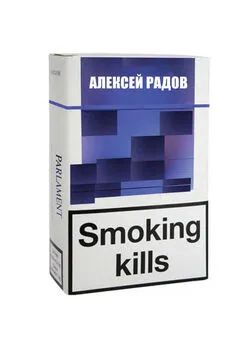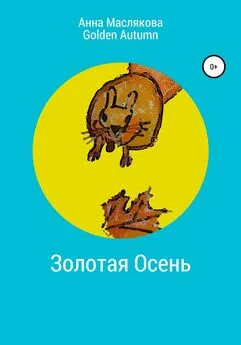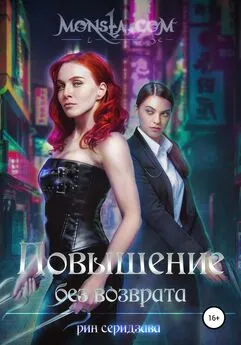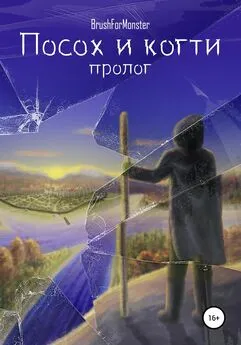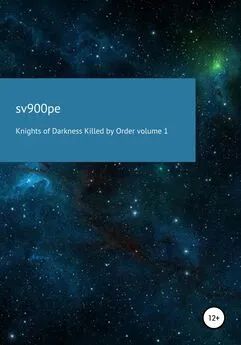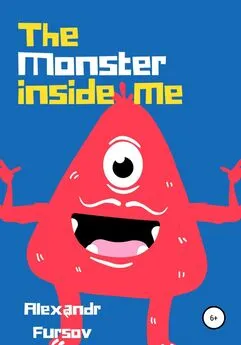Mons Kallentoft - Autumn Killing
- Название:Autumn Killing
- Автор:
- Жанр:
- Издательство:неизвестно
- Год:неизвестен
- ISBN:нет данных
- Рейтинг:
- Избранное:Добавить в избранное
-
Отзывы:
-
Ваша оценка:
Mons Kallentoft - Autumn Killing краткое содержание
Autumn Killing - читать онлайн бесплатно полную версию (весь текст целиком)
Интервал:
Закладка:
The search of the castle had yielded thousands of different fingerprints. A lot of them could be decades old, and there were no signs of obvious criminal activity anywhere. The victim’s possessions appeared to be untouched. In other words, no indications that robbery was the motive. The castle chapel and other buildings were also clean.
They were in the process of draining the moat in the search for the murder weapon, because the divers hadn’t been able to find anything in the sludge at the bottom. Sven was worried about the fish at first, until he accepted that they were a necessary sacrifice.
‘How are you going to play this?’
Sven looks over at Karim.
‘Tell it like it is. Without any details.’
‘The connection to Goldman?’
‘They’ve already found that. It’s on the Correspondent ’s website. TV4 are running with it. And doubtless more to come. They’re making a bloody big deal out of it.’
Then Sven sees Malin’s face before him. She looked worse than ever out at the castle. Red and puffy, almost old. She might well have been drinking all night. Had something happened? With Tove? She blames herself for what happened in Finspang last summer. Or is this about her and Janne? It doesn’t seem to be going very well.
‘Bloody hell,’ Sven says finally. ‘Why do I have a feeling that we’re only at the start of a whole load of misery?’
16
Borje Svard is standing in the rain in his garden in Tornhagen wearing a light blue raincoat. From the car Malin sees him raise his hand and throw a stick between the apple trees down towards the red-painted kennel block. The two beautiful Alsatians’ coats are glistening with damp as they chase the stick, playfully fighting over it with sharp, bared teeth.
Borje is a thickset man, and his waxed moustache is drooping towards the grass.
Zeke stops in front of the gate, parking behind the blue car of a district nurse. In the back seat Jerry Petersson’s beagle has leaped up, not barking, just staring expectantly out at the dogs in the garden.
Borje looks over towards them. Waves them over to him, stays where he is in the middle of the garden.
The little single-storey house is painted white, well maintained. Borje’s wife Anna would never tolerate anything else, even though she’s so weak now that she can’t even breathe without help. The illness has destroyed the nerves around her lungs and she’s living on overtime, at the age of fifty.
They leave Jerry Petersson’s dog in the car, and the Alsatians rush over to them as they open the gate.
Not wary, but welcoming, sniffing and licking, before they set off down the garden again without paying any attention to the beagle in the back seat.
Zeke and Malin go over to Borje. Shake his wet hand.
‘How are you both doing?’ Zeke asks.
Borje shakes his head, turns away from the house.
‘I wouldn’t wish what she’s going through on anyone.’
‘That bad?’ Malin says.
‘The nurses are with her now. They come four times a day. Otherwise we manage by ourselves.’
‘Would she like to see us, do you think?’
‘No,’ Borje says. ‘She hardly wants to see me. I see you’ve got a dog in the car? I can’t imagine it’s yours, Fors?’
Malin explains what’s happened, who the dog belonged to, and would he mind looking after it for a while, until they know if there’s a relative or someone else who wants it?
Borje smiles. A smile that gradually breaks through layer upon layer of exhaustion, of grief experienced in advance.
‘A bitch?’
‘No. Male,’ Zeke says.
‘That might be OK,’ Borje replies, then he goes over to the car and the dog bounces about in the back seat, and a couple of minutes later it’s standing to attention beside Borje while the Alsatians sniff all around it.
‘Looks like he feels at home here,’ Malin says. ‘Nice and easy.’
‘Get back to work, I’ll look after the dog. What’s his name?’
‘No idea,’ Malin replies. ‘Maybe you could call him Jerry?’
‘That would just confuse him,’ Borje replies.
‘We’d better get going,’ Zeke says.
Borje nods.
‘I appreciate you dropping by.’
‘Look after yourselves,’ Malin says, then turns away.
The call comes at exactly a quarter past two, as Malin and Zeke are parking the car at the old bus station. There’s not much left of the buildings that stood on the square years ago. Now there’s a car park surrounded by buildings from different eras. Ugly grey-panelled blocks from the sixties, well-maintained buildings from the turn of the last century, with the skeletal black trees of the Horticultural Society Park in the background.
Close to Mum and Dad’s flat now. The damp, dark rooms that no one has lived in for years. The flat is pretentiously large, but it still isn’t a proper apartment. Why have they still got it? So Mum can tell her friends in Tenerife that they’ve got an apartment in the city? Their faces are starting to fade from my memory, Malin thinks as her mobile rings again. Mum’s thin cheeks and pointed nose, Dad’s laughter lines and oddly smooth forehead.
A silent love, theirs. An agreement. Like mine and Janne’s? A lingering love, clinging to the back of our memories, in a room to which we haven’t yet managed to close the door.
The plants they think are still alive.
Dried out.
Not a single damn plant alive any more, but what do they expect when they haven’t been home for more than two years?
She pulls her mobile from the pocket of the GORE-TEX jacket.
Hears the rain drumming on the roof of the car. Zeke wary beside her.
Tove’s number on the screen.
What can I say to her? Is she going to be sad, scared?
How can I talk to her without Zeke realising?
He’ll realise. He knows me too well.
‘Tove, hi. I saw you rang earlier.’
Silence at the other end.
‘I know it all ended weirdly yesterday and I should have called back, but something’s happened and I’ve been busy at work. Is Dad there?’
I hit him, Malin thinks. I hit him.
‘I’m at school,’ she finally hears Tove’s voice say. She’s not sad, not scared, almost sounds angry. ‘If you need to talk to Dad, call him.’
‘Of course, you’re at school. I’ll give him a call if I need to talk to him. Why don’t you come into the city this evening and we’ll have something to eat, OK?’
Tove sighs.
‘I’m going to go back to the house, to Dad.’
‘You’re going back to Dad.’
‘Yes.’
Another silence. It’s as if Tove wants to ask something, but what?
‘Well, you do whatever you want, Tove,’ Malin says, and she knows it’s exactly what she shouldn’t say, she ought to say things like: It’s all going to be OK, I’ll pick you up from school, I want to give you a big hug, I’ll make an effort, how are you, my darling daughter?
‘How are you, Mum?’
‘How am I?’
‘Forget it. I’ve got to go. I’ve got a lesson.’
‘OK, bye then. Talk to you later. Big kiss.’
Zeke looking at her sympathetically. He knows everything, absolutely everything.
‘So you’re living back in the city again? I wondered when I picked you up this morning.’
‘It’s nice to be home.’
‘Don’t be so hard on yourself, Malin. We’re only human.’
Tove clicks to end the call and watches her schoolmates hurrying to and fro along the corridor of the Folkunga School, sees the way the high ceiling and the dark light filtering in through the arched windows from the rain-drenched world outside makes the pupils look smaller, defenceless.
Bloody Mum.
The least she could have done is call back. She doesn’t even seem to be considering coming back to the house tonight. Now the pain in her stomach is growing again, below her heart, growing impossibly large. She sounded abrupt and businesslike, it was as if she wanted to finish the call as soon as possible, she didn’t even ask how I am, why did I even bother to call? She probably just wants to go and have a drink.
I know why I called.
I want her to come home. I want them to stand in the kitchen having a hug, and I want to watch.
Don’t think about it, Tove.
She taps her mobile against her head.
Don’t think about it.
Some twenty metres away three of the older boys are grouped around a fat younger boy. Tove knows who he is. An Iraqi who can hardly speak a word of Swedish, and the older boys love bullying him. Bloody cowards.
She feels like getting up, going over and telling them to stop. But they’re bigger, much bigger than her.
Mum sounded disappointed when she said she was going back to Dad’s. Tove had been hoping that would make her want to go as well, but deep down she knows that’s not how things work in the adult world, everything’s so damn complicated there.
Now they’re hitting the boy.
Abbas, that’s his name.
And she puts her pen and notepad on the floor by her locker. She pushes her way through the crowd over to the three bullies. She shoves the tallest of them in the back, yelling: ‘Why don’t you pick on someone your own size instead?’ and Abbas is crying now, she can see that, and the force of her voice must have surprised the stupid bloody idiots, scared them, because they back away, staring at her. ‘Get lost,’ she yells, and they stare at her as if she’s a dangerous animal, and Tove realises why she frightens them, they must know what happened out in Finspang, what happened to her, and they respect her because of that.
Idiots, she thinks. Then she puts her arms around Abbas, he’s small and his body is soft, and she pretends he’s Mum, that she can comfort her with just a hug and a promise that everything’s going to be all right, from now on everything’s going to be all right.
Axel Fagelsjo’s apartment on Drottninggatan is, to put it in estate-agent jargon, magnificently appointed, Malin thinks. But it’s still only a fraction as ostentatious as Skogsa Castle.
Panelling, and shiny, tightly woven Oriental rugs that make her headache flare up again. Authentic, expensive, quite different from the cheap rugs bought at auction on the floors of her mum and dad’s flat. The worn leather of the armchairs shimmers in the light of the chandeliers and candelabra.
And the man in front of them.
He must be about seventy, Malin thinks. And right-handed. The embodiment of authority, and she tries to stay calm, not become defensive the way she knows she always is when she meets people higher up the social ladder than she could ever get.
All of this still exists.
The Social Democrats may have managed to create a superficial equality in this country for a while, but it’s thin and transparent and false.
Portraits of Count Axel Fagelsjo’s ancestors hang in a row above the panelling. Powerful men with sharp eyes. Warriors, many of them.
They are witness to Fagelsjo’s awareness that he’s better than the rest of us, worth more. Unless that’s just my own prejudice? Malin thinks.
There are still big differences between people in Sweden. Bigger than ever, perhaps, because there’s a professed political desire to create a blue sheen of equality, a mendacious glow, as if there’s still a green shimmer of cash casting a light over the lives of the poor.
The blues say we’re all equally valuable. That everyone should have the same opportunities. And then they repeat it. And it becomes a truth even if they implement policies that mean those with money in the bank keep on getting richer even in these troubled times.
Читать дальшеИнтервал:
Закладка:
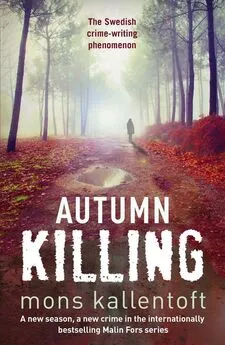

![Альфред Ван Вогт - Чудовище / The Monster [= Пятый вид: Загадочное чудовище; Воскресшее чудовище; Возрождение]](/books/155614/alfred-van-vogt-chudoviche-the-monster-pyatyj-v.webp)
